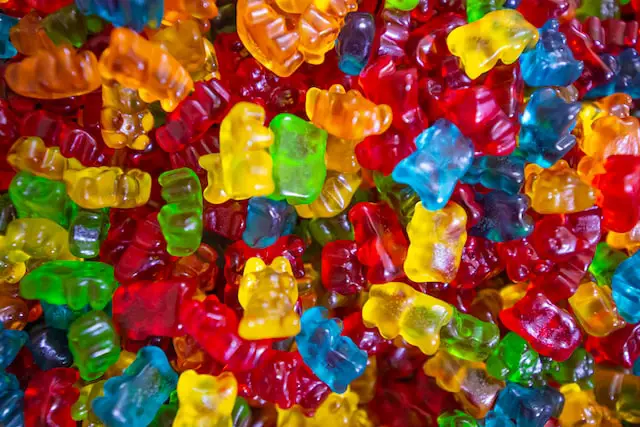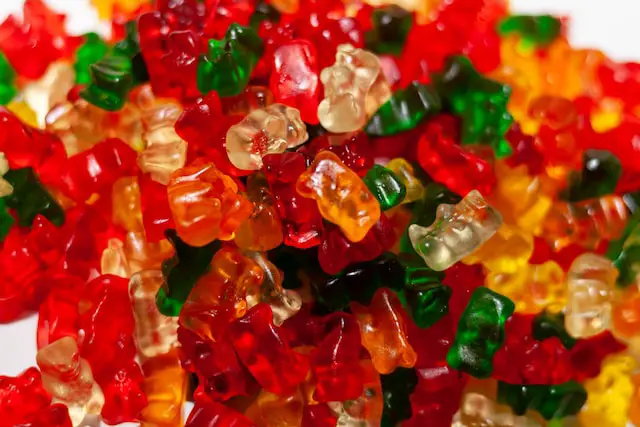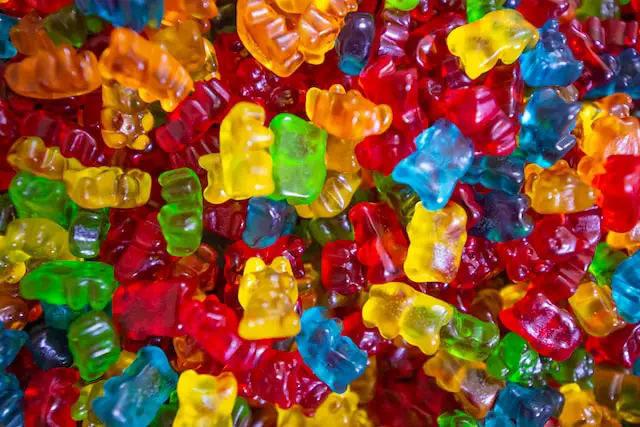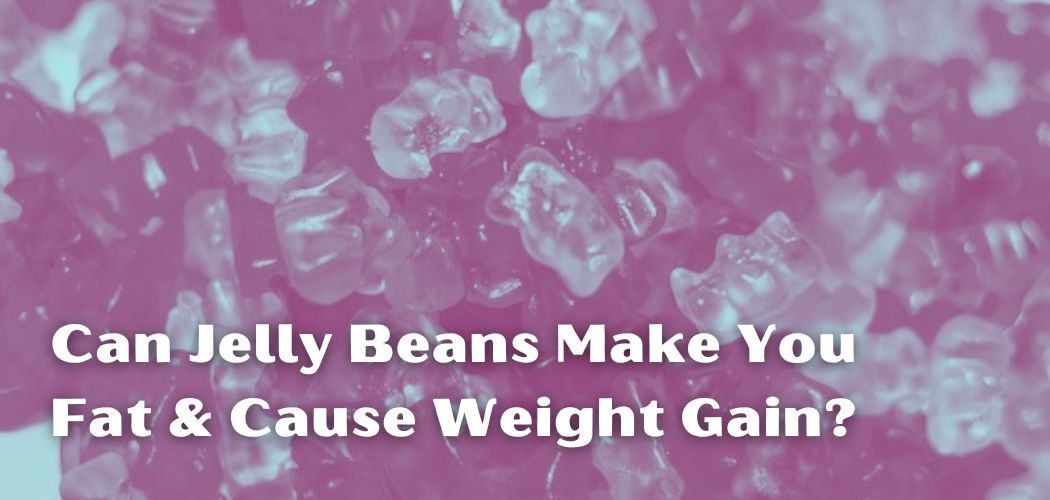Can the jelly beans that you love so much make you fat? Yes!
Because jelly beans can be quite addictive. Could you consume two or three and then stop? No. This is the problem! Before you even realize it, the entire bag will have disappeared.
Continue reading to discover why jelly beans can prevent you from attaining your weight loss goals, as well as alternative low-calorie and nutritious options.

Don’t be deceived by the jelly bean’s enticing sweet shell. These tasty little pods, with their multicolored shells and soft, gel-like contents, are predominantly composed of sugar.
In addition, they contain a mixture of corn syrup, glucose, tapioca, pectin, starch, salt, edible waxes, confectioner’s glaze, and various flavors and additions.
This combination may explain their great flavor, but how healthy are they really? not healthy in any way.
Contents
Nutritional Information
A serving of 130 little jellybeans has around 100 grams of sugar, the majority of which is unhealthy added sugar. This is equivalent to 25 teaspoons of sugar, or little more than 8 tablespoons.
A serving of 130 big jellybeans has around 255 grams of sugar, which is equivalent to 63.75 teaspoons or 21.25 tablespoons.
No matter how you look at it, 130 jellybeans contain significantly more sugar than the 6 teaspoons women should limit themselves to daily and the 9 teaspoons males should set as their daily added sugar limit.
High In Calories?
A single jelly bean, which has more than 4 calories, does not seem too horrible. Ten pieces of these beans have 40 calories, while ten giant jelly beans contain approximately 100 calories. If we intend to consume the entire 100g bag, we will consume around 375 calories.
They have a high-calorie content since they are entirely composed of carbohydrates and have little protein or fiber.
High-carbohydrate, low-nutrient foods tend to leave our hunger sensations unfulfilled, causing us to seek more empty calories.
Is It Unhealthy?
Like many things in life, jelly beans are beneficial in moderation but harmful in excess.
According to a renowned journal, excessive consumption of jelly beans can lead to weight gain and obesity due to the high sugar content of these candies, as well as an increased risk of heart disease, skin problems, and anxiety.
Consuming an excessive amount of the little candies could also lead to elevated blood pressure and, depending on your preferred taste, even more significant health issues.
In 2017, a guy was admitted to the hospital due to his addiction to black jelly beans. The patient in issue had been consuming a full bag of licorice-flavored beans daily and was so addicted that he was unable to stop the habit even in the hospital.

His symptoms included appetite loss, vomiting, dry mouth, hypertension, and hypokalemia, a disease characterized by low potassium levels (via The National Post).
Doctors soon determined that the man’s health problems were caused by his addiction to the shockingly deadly candy, and they advised him to quit.
After discontinuing the jelly beans, his blood pressure and potassium levels returned to normal within a few days. However, you need not fully abstain from jelly beans; only consume them in moderation.
Healthy Alternatives?
It is beneficial to discover what else is out there. Healthy alternatives to jelly beans may be the key to satisfying our sweet desires without derailing our weight-loss efforts.
Now, let’s examine some comparative samples of calorie density. You could consume a 200g fruit salad, four cups of popcorn, 50g of apple slices with 1 tablespoon of peanut butter powder, or 160g of nonfat yogurt for less than 100 calories.
Not persuaded? Remember that any of the above-mentioned alternatives is similar to 10 giant jelly beans but far more enjoyable!
Side Effects
Jelly beans are a type of confection comprised of sugar and corn syrup. They are frequently flavored with chocolate or fruit.
Although jelly beans are generally safe to consume, you should be aware of a few potential adverse effects. If you consume excessive quantities of jelly beans, you may develop abdominal pain, diarrhea, or vomiting.
Additionally, eating jelly beans can lead to cavities and tooth decay. If you have diabetes, you should avoid them since it might cause an increase in your blood sugar levels.
Do Jelly Beans Cause Weight Gain?
These tasty little pods, with their multicolored shells and soft, gel-like contents, are predominantly composed of sugar.
Jelly beans have a high-calorie content since they are virtually entirely composed of carbohydrates and have little protein or fiber.
High-carbohydrate, low-nutrient foods tend to leave our hunger sensations unfulfilled, causing us to seek more empty calories.

And when it comes to eating, the fewer calories you consume per day, the quicker your body will naturally begin shedding pounds.
If you want to lose weight and stay in shape for the summer, consider substituting sugary treats with lower-calorie options.
Heart Disease Risk Associated With Sugar
A diet high in sugar can be detrimental to heart health. Triglycerides might increase in response to excess use of sugar.
Triglycerides are a type of fat. When you have an excess of them in your body, the excess begins to build in your fat cells. This can lead to plaque formation on the arterial walls over time.
As your arteries become narrower due to plaque formation, your heart health declines and you will become more susceptible to coronary artery disease.
Conclusion
Due to their lack of nutrients and high-calorie content, excessive consumption of jelly beans will lead to weight gain.
And when it comes to eating, the fewer calories you consume daily, the quicker your body will begin to lose weight on its own.
So, according to the information given above, it is suggested by some expert nutritionists that you shouldn’t make them a daily snack. If you want to lose weight and get in shape for the summer, try substituting these sugary sweets with options that are lower in calories.
